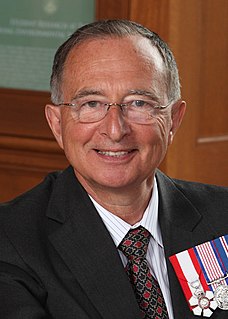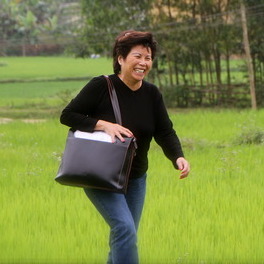A Quote by Kelvin Ogilvie
If you could read some of the stories that we had before us of parents of children dying of, let's say, bone cancer. Or people who dealt with family members drowning in their own bodies, in the end, suffering without any hope of modern medical science easing their pain or offering any comfort. With the absolute knowledge that they were going to die anyway. I can't quite comprehend how we could want those people to continue to suffer that extreme agony on the understanding that it is the will of a creator or some other philosophical concept.
Quote Topics
Absolute
Agony
Any
Anyway
Before
Bodies
Bone
Bone Cancer
Cancer
Children
Children Dying
Comfort
Comprehend
Concept
Continue
Could
Creator
Dealt
Die
Drowning
Dying
End
Extreme
Family
Family Member
Family Members
Going
Had
Hope
How
In The End
Knowledge
Medical
Medical Science
Members
Modern
Offering
Other
Own
Pain
Parents
People
Philosophical
Quite
Read
Say
Science
Some
Stories
Suffer
Suffering
Those
Understanding
Us
Want
Were
Will
Without
Related Quotes
Historians of a generation ago were often shocked by the violence with which scientists rejected the history of their own subject as irrelevant; they could not understand how the members of any academic profession could fail to be intrigued by the study of their own cultural heritage. What these historians did not grasp was that scientists will welcome the history of science only when it has been demonstrated that this discipline can add to our understanding of science itself and thus help to produce, in some sense, better scientists.
I would like to die peacefully with Thomas Tallis on my iPod before the disease takes me over and I hope that will not be for quite some time to come, because if I knew that I could die at any time I wanted, then suddenly every day would be as precious as a million pounds, if I knew that I could die, I would live. My life, my death, my choice.
Science, by itself, cannot supply us with an ethic. It can show us how to achieve a given end, and it may show us that some ends cannot be achieved. But among ends that can be achieved our choice must be decided by other than purely scientific considerations. If a man were to say, "I hate the human race, and I think it would be a good thing if it were exterminated," we could say, "Well, my dear sir, let us begin the process with you." But this is hardly argument, and no amount of science could prove such a man mistaken.
Reading is always a way of forming a bond with other people. I'm not very good at socializing - I quite like spending time alone - so reading is a way of engaging quite deeply with the way other people think. Quite often when you meet other people socially you don't get to have a conversation of any depth. You end up talking about how well or how badly someone is doing at school or something of that sort. Questions like, "What we are," "Who we are," "Where are we going," you get those from literature and from people that spend some time thinking.
For you see, the face of destiny or luck or god that gives us war also gives us other kinds of pain: the loss of health and youth; the loss of loved ones or of love; the fear that we will end our days alone. Some people suffer in peace the way others suffer in war. The special gift of that suffering, I have learned, is how to be strong while we are weak, how to be brave when we are afraid, how to be wise in the midst of confusion, and how to let go of that which we can no longer hold. In this way, anger can teach us forgiveness, hate can teach us love, and war can teach us peace.
I don't know of any science writing going on in women's magazines, unless you count medical stories about things like breast cancer. I still think there's a huge problem about how we can actively engage a wider range of women. I'm not saying women must be a separate audience - I'm just responding to the reality that the majority of people who do read science magazines are male. That's not a value judgment; it's a statistical fact.
About one month before he was killed, when asked by David Frost how his obituary should read: Something about the fact that I made some contribution to either my country, or those who were less well off. I think back to what Camus wrote about the fact that perhaps this world is a world in which children suffer, but we can lessen the number of suffering children, and if you do not do this, then who will do this? I'd like to feel that I'd done something to lessen that suffering.
True. The one certainty about riding, Braygan, is that - at some time - you will fall off. It is a fact. Another fact you might like to consider, in your life of perpetual terror, is that you will die. We are all going to die, some of us young, some of us old, some of us in our sleep, some of us screaming in agony. We cannot stop it, we can only delay it.
The internet has spawned people for whom knowingness is more important than knowledge. It equips you with the illusion of offering knowledge instantly - and quite easily - so you can read a few articles on a few subjects and feel well informed but not actually know any of those subjects in any depth.
In terms of the ego, most religions teach in some way that all of us must die before we die, and then we will not be afraid of dying. Suffering of some sort seems to be the only thing strong enough to destabilize our arrogance and our ignorance. I would define suffering very simply as whenever you are not in control.
It is one thing to say that science is only equipped to test for natural causes and cannot speak to any others. It is quite another to insist that science proves that no other causes could possibly exist. . . . There would be no experimental model for testing the statement: 'No supernatural cause for any natural phenomenon is possible.' It is therefore a philosophical presupposition and not a scientific finding.


































